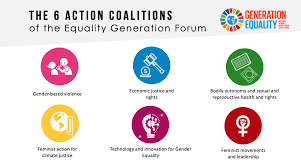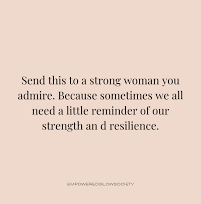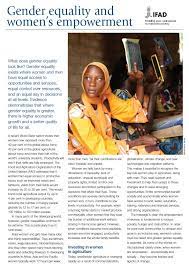The Importance of UN Women’s Empowerment Initiatives
UN Women’s empowerment initiatives play a crucial role in advancing gender equality and promoting the rights of women and girls worldwide. Through various programs and campaigns, UN Women works tirelessly to empower women economically, socially, and politically.
Economic Empowerment
One key aspect of UN Women’s empowerment efforts is economic empowerment. By providing women with access to financial resources, training, and opportunities for entrepreneurship, UN Women helps women break the cycle of poverty and achieve financial independence. Empowered women contribute not only to their families’ well-being but also to the overall economic growth of their communities.
Social Empowerment
UN Women also focuses on social empowerment by advocating for gender equality in social norms and practices. Through awareness campaigns and education programs, UN Women challenges harmful stereotypes and promotes a culture of respect and equality. Socially empowered women are better able to make choices that benefit themselves and their communities.
Political Empowerment
Political empowerment is another critical area where UN Women makes a significant impact. By supporting women’s participation in decision-making processes at all levels of society, UN Women helps ensure that women’s voices are heard in shaping policies that affect their lives. Political empowerment not only benefits individual women but also leads to more inclusive and effective governance.
Challenges Ahead
Despite progress made in advancing women’s empowerment globally, there are still many challenges ahead. Gender-based discrimination, violence against women, unequal access to education and healthcare, and limited representation in leadership positions are just some of the obstacles that continue to hinder women’s full empowerment.
Call to Action
It is essential for governments, organizations, communities, and individuals to join forces in supporting UN Women’s empowerment initiatives. By working together to address the root causes of gender inequality and empower women and girls worldwide, we can create a more just and equal society for all.
UN Women’s empowerment efforts are not only about promoting the rights of women but also about building a better future for everyone. Let us stand together in solidarity with UN Women in their mission to empower women and achieve gender equality across the globe.
Understanding UN Women’s Empowerment: Key Questions and Insights
- What is UN Women’s empowerment?
- Why is UN Women’s empowerment important?
- How does UN Women empower women economically?
- What are the key areas of focus for UN Women’s social empowerment initiatives?
- How does UN Women support women’s political empowerment?
- What are the challenges facing UN Women’s empowerment efforts?
- How can individuals contribute to UN Women’s empowerment initiatives?
What is UN Women’s empowerment?
UN Women’s empowerment encompasses a multifaceted approach aimed at advancing gender equality and promoting the rights of women and girls globally. It involves initiatives that focus on economic, social, and political empowerment to create a more inclusive and equitable society. Through programs that provide women with access to resources, opportunities for leadership, and advocacy for gender equality, UN Women’s empowerment efforts seek to empower women to make informed choices, participate in decision-making processes, and contribute meaningfully to their communities. By addressing systemic barriers and challenging discriminatory practices, UN Women’s empowerment initiatives strive to create a world where all individuals have the opportunity to fulfill their potential regardless of gender.
Why is UN Women’s empowerment important?
UN Women’s empowerment is crucial because it plays a vital role in advancing gender equality and promoting the rights of women and girls globally. By empowering women economically, socially, and politically, UN Women helps break down barriers that have long hindered women’s progress and full participation in society. Empowered women contribute to stronger economies, more inclusive communities, and better governance. UN Women’s empowerment initiatives not only benefit individual women but also lead to a more equitable and just world for all.
How does UN Women empower women economically?
UN Women empowers women economically through a variety of initiatives aimed at providing women with the tools and resources they need to achieve financial independence. By offering training programs, access to financial resources, and opportunities for entrepreneurship, UN Women helps women break the cycle of poverty and gain economic autonomy. Additionally, UN Women advocates for equal pay, promotes women’s participation in the workforce, and supports policies that create a conducive environment for women to thrive economically. Through these efforts, UN Women plays a vital role in empowering women economically and advancing gender equality on a global scale.
What are the key areas of focus for UN Women’s social empowerment initiatives?
UN Women’s social empowerment initiatives focus on key areas such as challenging harmful gender stereotypes, promoting gender equality in social norms and practices, advocating for women’s rights, and raising awareness about issues affecting women and girls globally. Through education, awareness campaigns, and community engagement, UN Women strives to create a more inclusive and equitable society where women have the opportunity to fully participate in decision-making processes and lead fulfilling lives free from discrimination and violence. By addressing social barriers and promoting a culture of respect and equality, UN Women’s initiatives aim to empower women to make informed choices about their lives and contribute meaningfully to their communities.
How does UN Women support women’s political empowerment?
UN Women supports women’s political empowerment through various initiatives aimed at increasing women’s participation in decision-making processes at all levels of society. UN Women works to advocate for gender equality in political representation, provide training and capacity-building programs for women leaders, and promote policies that support women’s political engagement. By addressing barriers such as discriminatory laws, cultural norms, and lack of access to resources, UN Women helps create an enabling environment for women to actively participate in politics and governance. Through these efforts, UN Women plays a vital role in advancing women’s political empowerment and ensuring that women’s voices are heard in shaping policies that affect their lives.
What are the challenges facing UN Women’s empowerment efforts?
One of the frequently asked questions regarding UN Women’s empowerment efforts revolves around the challenges they face in advancing gender equality. Despite their dedicated initiatives, UN Women encounters various obstacles in their mission. These challenges include deep-rooted gender-based discrimination, pervasive violence against women, unequal access to education and healthcare, as well as limited representation of women in leadership roles. Addressing these complex issues requires a multifaceted approach that involves not only policy changes but also shifts in societal norms and attitudes towards gender equality. UN Women continues to work tirelessly to overcome these challenges and create a more inclusive and equitable world for all.
How can individuals contribute to UN Women’s empowerment initiatives?
Individuals can contribute to UN Women’s empowerment initiatives in various ways. One impactful way is through raising awareness about gender equality issues and advocating for women’s rights in their communities. By supporting and participating in fundraising campaigns, volunteering for local organizations that promote women’s empowerment, and educating themselves and others on the importance of gender equality, individuals can play a vital role in advancing UN Women’s mission. Additionally, individuals can support women-owned businesses, mentor young women, and actively work to challenge stereotypes and biases that perpetuate gender inequality. Every small action counts towards creating a more inclusive and equitable world for all.




